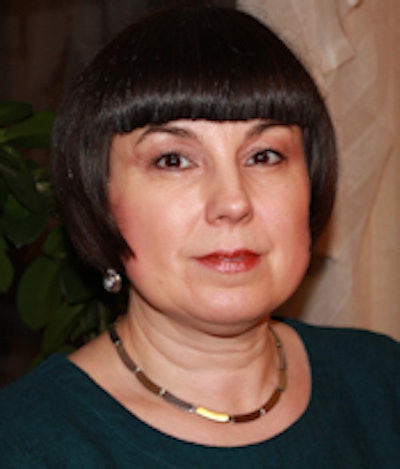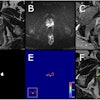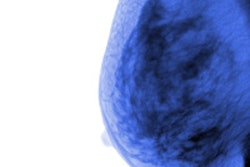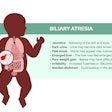
Women who receive false-positive mammograms are twice as likely to experience long-term unpleasant psychosocial consequences than women with negative exams, according to a new study published in the journal Cancer Epidemiology, Biomarkers and Prevention.
Researchers from Skåne University Hospital in Malmö, Sweden, found that the use of early recall -- calling a woman back for mammography before the next regularly scheduled exam -- can result in negative emotional consequences that may persist for up to 12 months after the initial false-positive mammogram.
"In particular, [in our study] early recall demonstrated the potential to increase the prevalence of long-term psychosocial consequences," wrote lead author Anetta Bolejko, PhD, and colleagues. "We therefore stress that this procedure should be applied cautiously, as it seems to create confusion and maintain psychosocial distress, whereas its potential advantage of providing reassurance can be questioned."
Still, the authors acknowledged that the consequences of emotional distress should be balanced against the lifesaving value of breast screening.
Screening the healthy
Because people invited to screening do not have symptoms of the disease for which they are being screened, delivery of screening raises the issue of how to handle side effects, and mandates that women be informed of the risks involved, Bolejko told AuntMinnie.com via email.
 Anetta Bolejko, PhD, from Skåne University Hospital.
Anetta Bolejko, PhD, from Skåne University Hospital."From this perspective, it's crucial to monitor the psychosocial consequences of false-positive mammographic screening in an ongoing population-based screening program," she said.
In their study, Bolejko and colleagues explored the prevalence, length, and predictors of psychosocial consequences of false-positive mammography. They evaluated two groups of women who were screened between September 2009 and December 2010: 399 women had false-positive results and 449 women had negative screening mammograms (Cancer Epidemiol Biomarkers, August 26, 2015).
Both groups were given a questionnaire called the Consequences of Screening in Breast Cancer (COS-BC) just after they received their final screening results -- a confirmation of no cancer. The questionnaire was also given six and 12 months later.
The COS-BC questionnaire categorized the consequences of mammography results into five areas to measure outcomes:
- A sense of dejection
- Anxiety
- Impact on behavior
- Impact on sleep
- Impact on existential values
There were no social, demographic, or cancer history differences between the two groups, the authors wrote.
At baseline, after their recall examination, women with false-positive mammography results were at least five times more likely to report negative psychosocial consequences than women who had a negative mammogram. In addition, at six and 12 months, they were more than twice as likely to report psychosocial consequences, the researchers found.
| Women reporting negative consequences from mammography | |||||
| Consequence | Baseline | 6 months | 12 months | ||
| Sense of dejection (feeling uneasy, sad, or unable to cope) | |||||
| Group 1 (false positive) | 88% | 44% | 41% | ||
| Group 2 (negative) | 32% | 15% | 17% | ||
| Anxiety | |||||
| Group 1 | 83% | 44% | 39% | ||
| Group 2 | 30% | 20% | 19% | ||
| Behavioral issues (e.g., difficulty at work) | |||||
| Group 1 | 67% | 32% | 31% | ||
| Group 2 | 21% | 13% | 13% | ||
| Sleep | |||||
| Group 1 | 53% | 29% | 28% | ||
| Group 2 | 17% | 11% | 11% | ||
| Existential values | |||||
| Group 1 | 56% | 56% | 53% | ||
| Group 2 | 30% | 30% | 25% | ||
The study highlights the significance of giving women good information to cope with false-positive mammograms, according to the authors.
"Interviews with women who had experienced false-positive screening mammography have found that recalled women look for adequate and individualized information," they wrote. "Personalized information and communication therefore appear both preferable and needed to prevent or lessen psychosocial consequences of false-positive mammographic screening."
Although the study was not designed to investigate intervention to reduce psychosocial consequences, the researchers did suggest that early recall should be applied cautiously.
"The importance of finding cancers through early recall should be balanced against the drawbacks," Bolejko told AuntMinnie.com. "[Early recall] seems to create confusion and psychosocial distress, while its potential advantage of offering women reassurance is questionable."
Extent but not relevance
The study measures the extent of psychosocial consequences for women who receive false-positive mammograms, but not the relevance of these consequences, Bolejko cautioned. To explore the relevance of psychosocial consequences of false-positive screening mammography, the perspective of the individual woman needs to be explored, she told AuntMinnie.com.
"Our study provides additional knowledge about mammographic screening with a focus on one issue of screening, that is, the potential psychosocial consequences of false-positive screening mammography," she said. "Knowledge about the prevalence and longitudinal development of such consequences among women provides clues to address the extent of the side effects of screening ... [but] it seems reasonable to consider the short- and long-term psychosocial consequences of false-positive screening mammography as less important in relation to the life that might be saved."



















